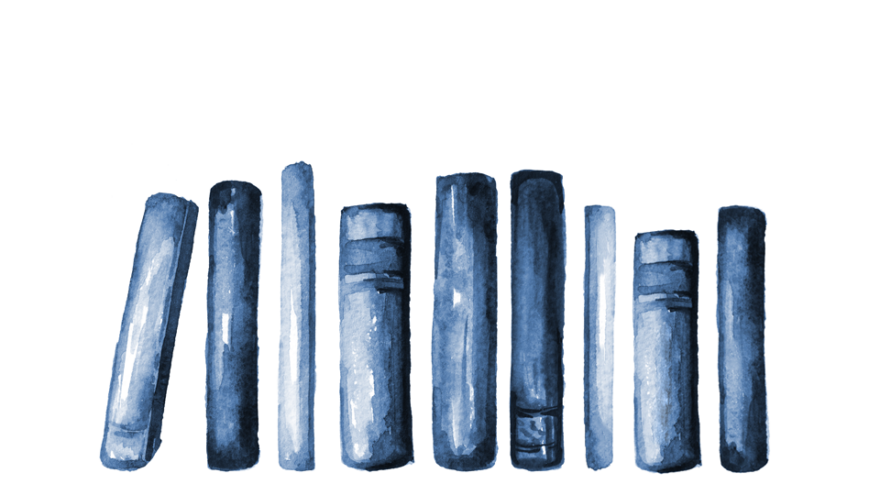
MINI-FOREST REVOLUTION
Hannah Lewis
The daily bombardment by the media about climate change and its dire effects can make us feel impotent to stop it. But Hannah Lewis ’97 has written a book of hope, showing a way even an individual can make a difference in combating the crisis: Mini-Forest Revolution: Using the Miyawaki Method to Rapidly Rewild the World. She describes how Japanese plant ecologist Dr. Akira Miyawaki developed a forest restoration method that involves planting mini-forests consisting of plant species native to a location—a small-scale activity that can involve anybody from children to the elderly in the process. By identifying a combination of plant species best suited to the site where they will be planted, improving the site’s soil quality, planting trees densely, and lightly maintaining the site in the beginning by weeding and watering, the creators of a mini-forest can expect the rapid growth of a self-sustaining forest in a matter of years. The tiny forests offer rich biodiversity and environmental benefits, and Lewis’s success stories about mini-forests planted around the world demonstrate a positive approach to helping heal our planet.

MOUNTAIN LION RISES
Jacinta Hart Kehoe
In 2003, Jacinta Hart Kehoe, MA English ’92 was in a horrific car accident that changed her life forever. Almost 20 years later, she has published a memoir of the grief and healing that she has gone through over time, while trying to recover from serious injury and parent a traumatized adopted child. In Mountain Lion Rises: A Memoir of Healing, she recounts her own personal mental and physical struggles after the accident, which are intricately intertwined with her daughter’s emotional ups and downs—later diagnosed as autoimmune disease and bipolar disorder. At times you wonder how Hart Kehoe can bear it all, from her daughter’s screaming accusations to her own deep feelings of loss for her son who died in the accident. But the author infuses her story with the hope and sustainment one finds from nature and animals, dear friends, and found love. In the end she comes to terms with her life, what she has lost and gained, and what she realizes is truly important.

REALITY
Brad Becker-Parton
Film producer Brad Becker-Parton ’11.5 was recently recognized at the Sundance Film Festival with the 2024 Sundance Institute/Amazon MGM Studios Producers Award for fiction. The award honors Becker-Parton for his body of work and commitment to creative producing in the independent space. Talking about his work as a producer, Becker-Parton asserts there is much he and others can’t control in the film industry, from boardroom decisions to audience tastes. But what they can do is trust their own tastes in finding vital, provocative stories; making things with integrity on sets where everyone feels empowered; and not cutting corners unnecessarily to save money for rich people, but making sure directors, producers, actors, and crews are fairly compensated. Recent films he has produced include Master, released in 2022; Stress Positions, which premiered in the U.S. Dramatic Competition at the 2024 Sundance Film Festival; and the 2023 film Reality, the story of Reality Winner, who was accused and convicted of leaking classified documents from the National Security Agency—documents that revealed proof of Russian interference in the 2016 election.

ON THE ROAD TO LVIV
Christopher Merrill
Poet Christopher Merrill ’79 has published On the Road to Lviv, his odyssey across Ukraine just as the Russian forces were poised to invade in 2022. Part elegy to the late poet Adam Zagajewski, who was born in Lviv; part chronicle of war’s devastation and crimes; and part self-reflection on his own personal connection with Ukraine, Merrill’s poem weaves together what he witnesses on his journey with a meditation on history and a world in crisis. Poet Ilya Kaminsky writes, “Why is it reassuring, I ask myself, that in this terrifying moment when cities are bombed, there is a poet watching, and taking notes, reporting both to the poet before him, and to those who will come after? I find it reassuring, and humbling, yes. For there isn’t merely a documentary voice in these pages, and not merely a shout of just outrage, but also a strangeness, and even wonder at the horror that’s history. What is a poet’s place in moments like this? A poet is like a barometer for the psyche of the nation, Zagajewski’s own mentor, Zbigniew Herbert, once told us. It doesn’t change the weather. But it tells us what the weather is like.”

Leave a Reply